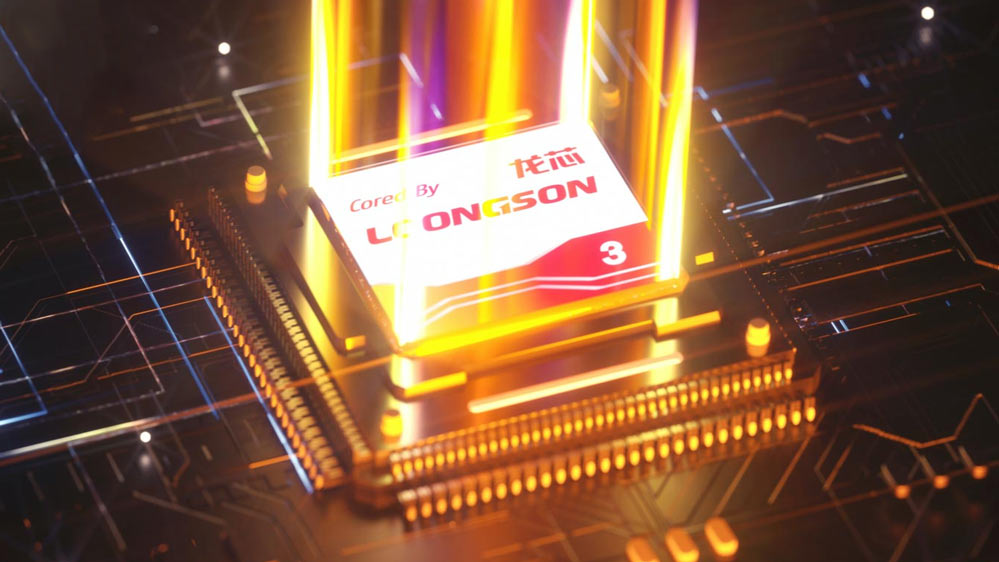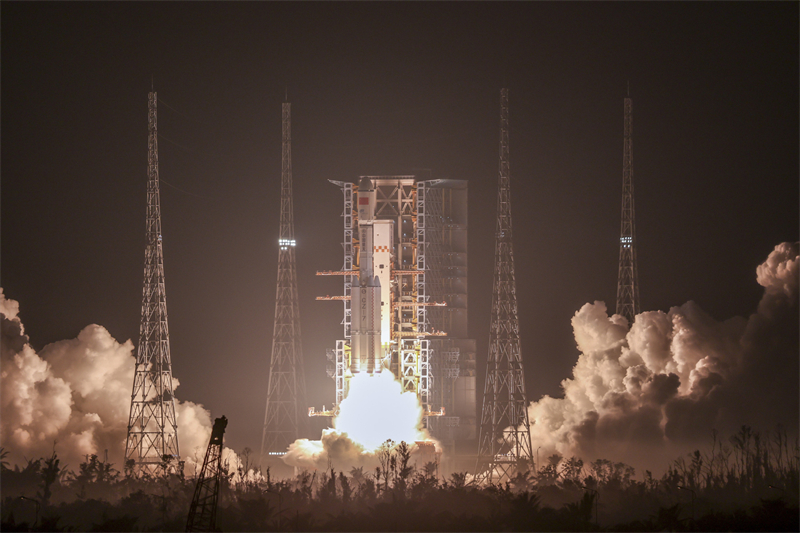Chinese desktop PC chipmaker Loongson now has chips running the Tiangong Space Station
This marks a new chapter for Chinese space exploration.

Loongson - the Chinese chipmaker gunning for Intel and AMD - has joined the cosmic competition (literally) as its chips are now available in space. ITHome reports that China's latest Tianzhou-8 spacecraft was packaged with a space-based system powered by Loongson processors - reportedly fabbed using an unnamed "advanced" process node. This cargo spacecraft delivered six tons of supplies and materials to the Tiangong Space Station and successfully docked within three hours of flight.
The new space-computing platform was dispatched via the Tianzhou-8 payload and successfully installed on docking with the Tiangong Space Station. This is a major step forward for China as it looks to achieve self-sufficiency in the semiconductor realm. A domestic and locally produced chip mitigates the risks associated with foreign supply and reduces China's dependence on Western hardware.
While the report doesn't go into specifics about the processor - it is likely based on a modified version of the MIPS ISA (Instruction Set Architecture). There are also various mentions that this Loongson chip leverages a cloud computing setup - though that could be a mistranslation. As per the details, the chips are equipped to undergo self-testing and offer on-orbit processing. They have dedicated storage, networking capabilities, and a thermal management system.

The report suggests that the chip is designed to execute tasks such as ground radiation source identification, which is likely to detect fissile material on Earth, optical remote sensing, monitoring electromagnetic radiation emitted or reflected from the Earth, and image capturing. The key notion here is that the Loongson chips do all this while in orbit under harsh space conditions - including but not limited to cosmic radiation exposure and limited power resources.
The payload also delivered several utilities and packages to the astronauts - like birthday gifts and other seasonal offerings for the Spring Festival, Mid-Autumn Festival, and the Dragon Boat Festival to keep the indigenous cultural spirit alive - even in space. The supplies also included lunar regolith simulant, which is essentially synthetic moon dust and is currently being employed to study the feasibility of space stations on the moon.
The Chinese chip industry still faces several hurdles - primarily the inability to source EUV equipment. This has crippled progress for SMIC and even Huawei, whose flagship Ascend AI chips are now limited to 7nm technology until 2026 - per rumors. While this is a step in the right direction, China must find breakthroughs in EUV technology if it wishes to stay competitive against global players.
Get Tom's Hardware's best news and in-depth reviews, straight to your inbox.

Hassam Nasir is a die-hard hardware enthusiast with years of experience as a tech editor and writer, focusing on detailed CPU comparisons and general hardware news. When he’s not working, you’ll find him bending tubes for his ever-evolving custom water-loop gaming rig or benchmarking the latest CPUs and GPUs just for fun.
-
Geef Since they don't go into specifics chances are good they have an Chinese made electric can opener up there attached to the space station wall. It is using a Longson chip.Reply
'...was packaged with a space-based can opening system powered by Loongson processors...'
There, fixed it for them. -
CNman Reply
Well, since you don’t have your own space station, it’s hard for you to imagine how the chips work there.Geef said:Since they don't go into specifics chances are good they have an Chinese made electric can opener up there attached to the space station wall. It is using a Longson chip.
'...was packaged with a space-based can opening system powered by Loongson processors...'
There, fixed it for them. -
Geef ReplyCNman said:Well, since you don’t have your own space station, it’s hard for you to imagine how the chips work there.
Your totally right, but I can't say I wouldn't want an electric can opener! How else would you open a can of Bush's Baked Beans in space? :unsure: